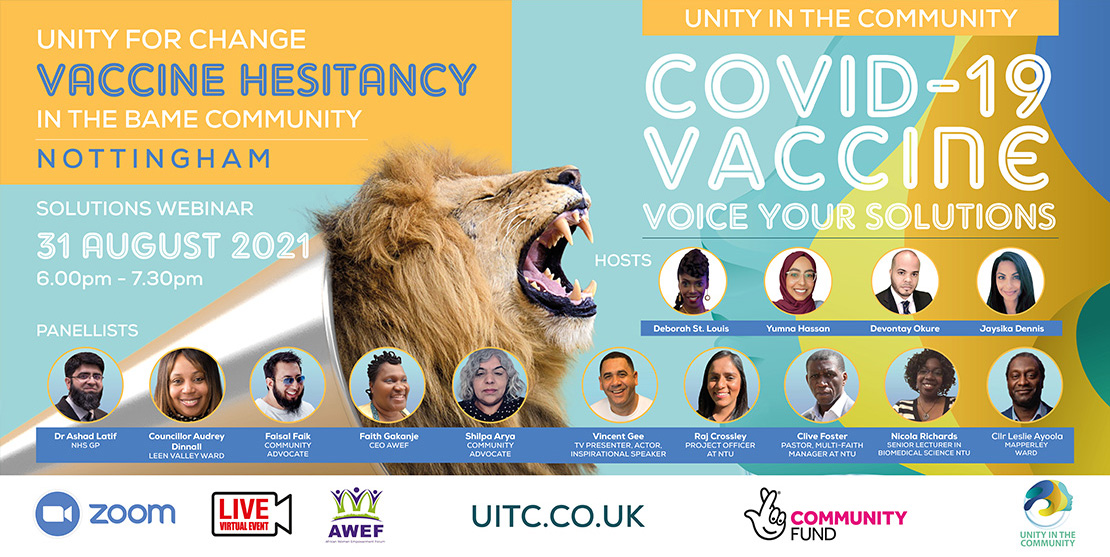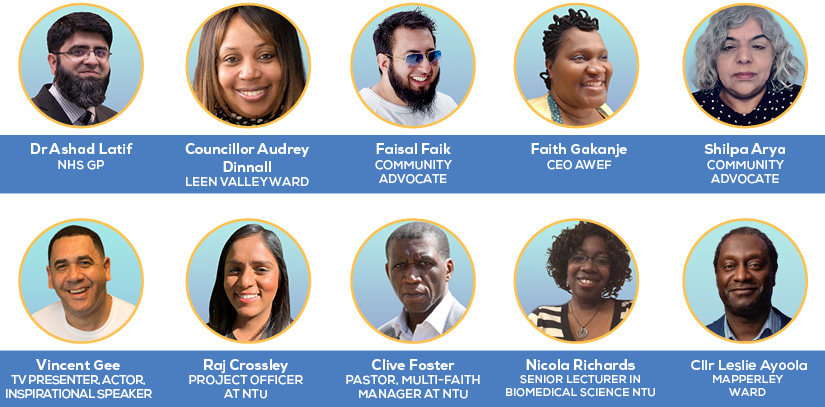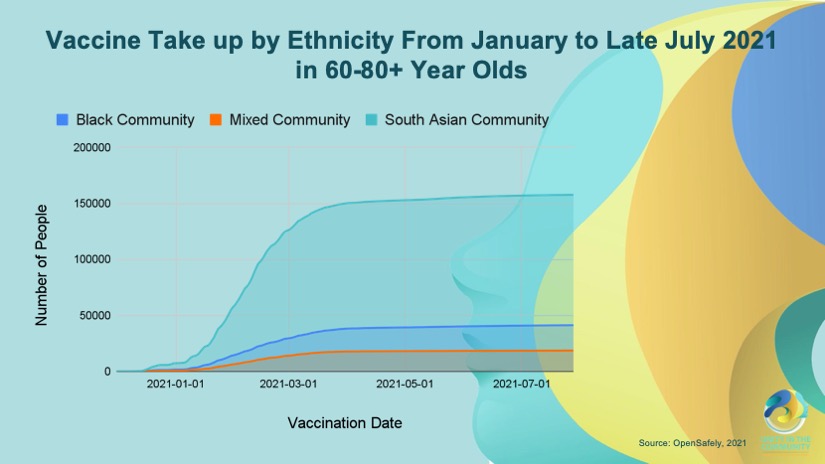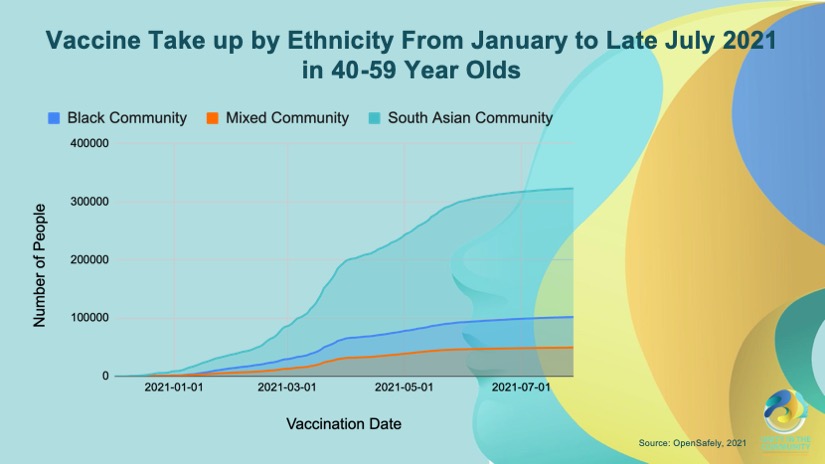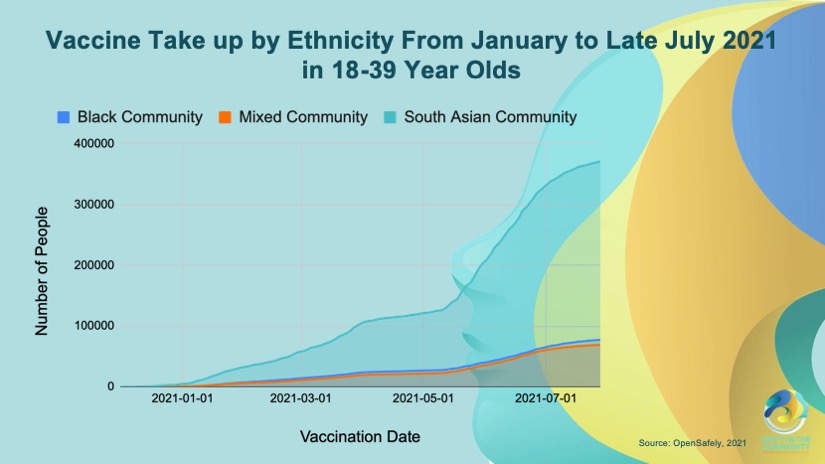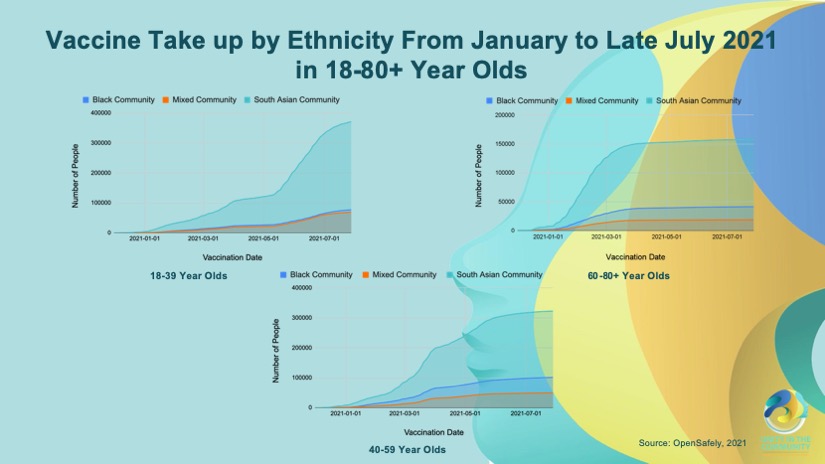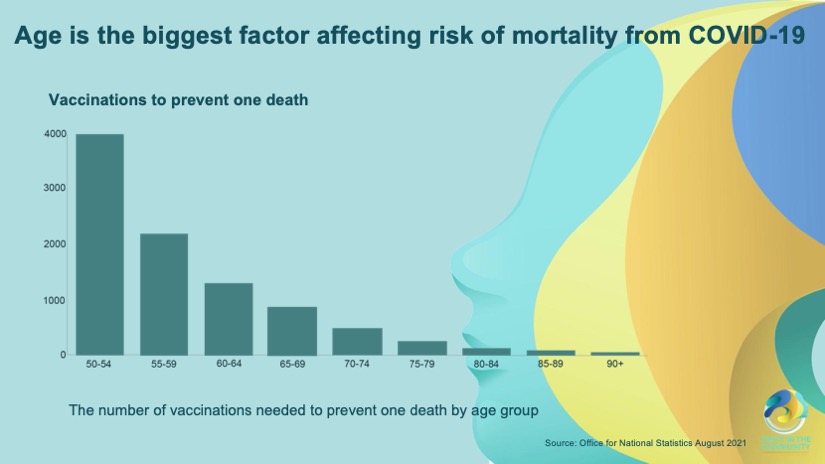As you can see in the first graph, vaccine uptake among 60-80-year-olds and above steadily increased earlier in the year and remained at its highest until more recently. The vaccination rate in the south Asian community is almost 3 times higher than the rate for the black community and the mixed community is at half the uptake level of the black community.
Amongst 40-59-year-olds, uptake was understandably slower earlier in the year but reached similar levels to that of the age group above. WITHIN the South Asian community we see a vaccination rate that is again approx 3 times more than the black community while the mixed community is once again, at half the rate of the former.
Finally, among 18-39-year-olds, understandably, covid vaccine uptake began glacially and climbed to its highest until the point of data collation with the HIGHEST RATE AMONGST THE south Asian community, almost 4 times the rate of the black and mixed communities which were both at similar uptake levels.
As evidenced by the data, it is apparent that THERE IS A similar TRAJECTORY amongst all age bands and ethnicities wherein vaccination rates are generally increasing.
As you can see in the slide, when paired with covid-19 vaccine uptake in the BAME communities from the beginning of distribution to July 28th, the white community’s vaccine uptake, highlighted in green, skews the scale of the graphs, minimising the sizes of BAME vaccination rate trendlines, only evidencing the south Asian community’s curve, as you can see in the Teal strip at the bottom of the green curve. This is due to the increased rates of vaccination among all age groups in the white community relative to BAME communities.
Furthermore, the rising and then consistently increased vaccination rates among 60-80-year-olds, regardless of having the earliest and longest period of eligibility, may be a consequence of several reasons, including age being a factor affecting the risk of mortality from covid-19.
According to data sourced by the health foundation in 2021, there is a direct correlation between the number of vaccinations amongst members of specific age groups and the number of deaths prevented. If we look at 50-54 year-olds, approximately 4000 people need to be vaccinated against covid-19 to prevent one death.
The number of vaccinations required to prevent one death sharply decreases with increasing age groups, with only 40 vaccinations of people older than 90 needed to prevent one death.
The covid vaccination data in the black, mixed and south Asian communities from the beginning of the roll-out until July 28th, broken down into 3 age bands. These statistics were sourced by OpenSafely in 2021.
The National Solutions & Approaches Taken to Address Hesitancy in the BAME Community
Several recommendations have been made for improving confidence and uptake by the Scientific Advisory Group for Emergencies (SAGE), including reducing stigma over lower uptake, providing educational resources, and addressing disinformation, which is incorporated into the government’s strategy.
The government has carried out a number of campaigns aimed at boosting vaccination rates, including those aimed specifically at the black and Asian communities.
Key campaigns by community influencers have included:
- Nadiya Hussain encouraged vaccination among British Bangladeshi audiences in a video
- Sir Lenny Henry and others addressed an open letter to Black groups
- Questions and answers presented by trusted clinical voices for the media
- Misinformation about vaccines addressed via social media
Engagement work by the government has focused on promoting vaccine uptake among ethnic minorities
This has included:
- High-profile ministerial visits to pop-up vaccination centres in places of worship
- Hosting roundtables with faith groups, medical professionals and community leaders to consider how to increase vaccine uptake
- Issuing guidelines for reducing infections within multi-generational households (translated into Bengali and Urdu) and installing screens in taxis and private vehicles.
In addition, work is being done to address fertility concerns among women, particularly those from ethnic minorities, including a series of videos with midwives, health visitors and expectant mothers about the benefits of taking the vaccine.
The government also has taken steps to ensure that South Asian groups are not stigmatized, especially as new variants of COVID-19 emerge, and has worked to build trust among these groups.
As a result of these initiatives, there have been increases in both positive vaccine sentiment and vaccine uptake over time across all ethnic groups, however, the disparity gap does still remain.
Click on the buttons below to find out further information for the other 2 individual webinars.
